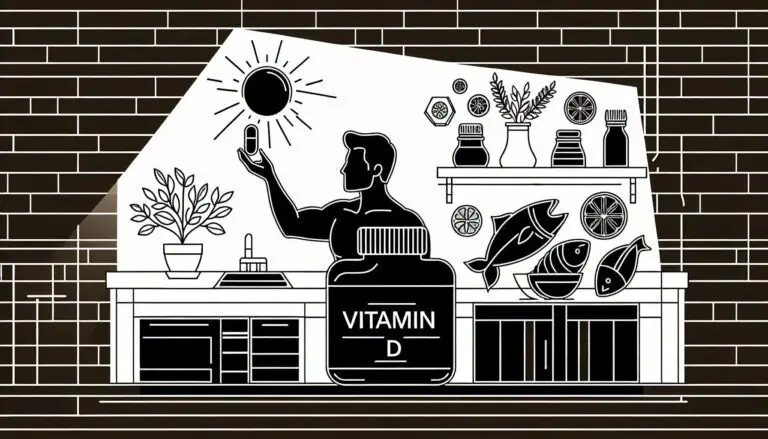Struggling with unexplained symptoms and suspect mold toxicity might be the culprit? Healing your gut could be the key to relief you’ve been searching for. Mold exposure can wreak havoc on your body, especially your gut health, leading to a myriad of unwelcome symptoms. In this text, we’ll jump into gut health practices that can offer significant relief from mold toxicity. From dietary changes to specific supplements, you’ll learn how to support your gut health and combat the effects of mold exposure. Get ready to take control of your health and begin on a journey to healing your gut.
Understanding Mold Toxicity and Its Impact on Gut Health
When you’re looking into healing your gut for relief from mold toxicity, it’s essential to grasp how exactly these issues are connected. Mold toxicity occurs when your body is exposed to harmful molds, leading to a build-up of biotoxins that can disrupt your health. This condition is often overlooked, but its effects on gut health are significant and can be the root cause of various symptoms.
First off, mold exposure might not always be obvious. It can happen in damp or water-damaged buildings, through inhaling or touching mold spores. Once these spores enter your body, they can produce toxins that affect your gut, leading to a cascade of health issues. The primary reason behind this is the gut-brain axis, a complex communication network linking your gut and brain, which can be significantly disrupted by mold toxins.
| Impact | Description |
|---|---|
| Inflammation | Mold toxins can cause inflammation in the gut lining, leading to leaks in the gut barrier. |
| Dysbiosis | They can also upset the delicate balance of your gut microbiome, resulting in dysbiosis. |
| Immune Response | Your immune system can become overly reactive, mistaking harmless substances for threats due to mold’s impact. |
Understanding the link between mold exposure and gut health is critical. Signs of mold toxicity include chronic fatigue, headaches, and digestive issues such as bloating, gas, and food sensitivities. If you’re experiencing these symptoms without a clear cause, it might be worth considering mold exposure as a potential culprit.
To combat these effects, emphasizing gut health is paramount. Embracing gut-friendly practices not only supports your overall health but can also be a critical step in mitigating the adverse effects of mold toxicity. Strategies include dietary changes, probiotics, and specific supplements designed to rebalance your gut microbiome and strengthen your gut barrier against toxins. Incorporating these practices into your daily routine can lead to significant improvements in your symptoms and overall well-being.
Signs and Symptoms of Mold Toxicity Affecting Gut Health
When your gut health is compromised due to mold toxicity, specific signs and symptoms are red flags that should not be ignored. Understanding these symptoms can help you seek appropriate interventions timely.
First off, chronic fatigue is one of the hallmark signs that mold toxicity may be wreaking havoc on your gut health. It’s not the usual tiredness that goes away with rest. Instead, it’s a profound exhaustion that significantly impacts your daily life, making even simple tasks seem daunting.
Another significant symptom is digestive issues. These can range from frequent diarrhea, constipation, to nausea. When mold toxicity affects your gut, these symptoms can persist, causing discomfort and distress.
Many individuals also report experiencing brain fog. This term refers to feeling unclear or not being able to think properly. It’s linked to the gut-brain axis—a critical pathway through which the gut and brain communicate. When your gut health is compromised by mold toxins, it can disrupt this communication, leading to cognitive difficulties.
Unexplained weight changes—either gain or loss without a clear reason—can also be a symptom. The disruption of the gut’s natural flora can impact your metabolism, leading to these unexplained changes in weight.
If you’re experiencing any of these symptoms, it’s crucial to consider the possibility of mold exposure as an underlying cause. Recognizing these signs early can lead to more effective interventions that focus on healing your gut and alleviating the adverse effects of mold toxicity on your overall well-being.
Importance of Gut Health in Combating Mold Toxicity

In your journey to reclaim your health from the impacts of mold toxicity, understanding the critical role of gut health is a game changer. The gut is not just about digestion; it’s a central hub for your immune system and plays a vital role in detoxifying harmful substances, including mold toxins. A healthy gut can be your first line of defense against the systemic effects of mold exposure.
Gut Microbiota’s Role in Detoxification: Your gut microbiota comprises trillions of bacteria, some beneficial and some harmful. When in balance, these microbes help break down toxins and eliminate them from your body. But, an imbalance can lead to increased toxin load, exacerbating symptoms associated with mold toxicity. It’s essential to support a healthy microbiota to enhance your body’s natural detox processes.
Maintaining the Gut-Brain Axis: Evidence suggests that mold toxicity can disrupt the gut-brain axis, leading to neurological symptoms like brain fog and fatigue. By nurturing your gut health, you’re also supporting cognitive functions and overall brain health, reducing the adverse effects mold has on your mental clarity and emotional well-being.
Key Practices for Gut Health:
- Probiotic and Prebiotic Intake: Incorporating foods rich in probiotics like yogurt, kefir, and sauerkraut, as well as prebiotic foods such as garlic, onions, and bananas, can help balance your gut microbiota.
- Adequate Hydration: Drinking plenty of water aids in the elimination of toxins through your gastrointestinal tract.
- Dietary Adjustments: Reducing intake of sugar and processed foods, which can feed harmful bacteria, is crucial. Embracing a diet rich in fruits, vegetables, and fibers can promote a healthier gut environment.
Focusing on these areas boosts your body’s ability to combat the effects of mold toxicity more effectively. By paying close attention to your gut health, you’re not just addressing the symptoms but getting to the root of the problem, paving the way for a more resilient and healthier you.
Gut-Healing Dietary Changes for Mold Toxicity Relief

In tackling mold toxicity, the food you eat can either be your greatest ally or a significant hindrance. It’s crucial to adjust your diet to support gut health, fostering an environment where your body can efficiently combat toxins. Gut-healing dietary changes play a pivotal role in dictating the pace and effectiveness of your recovery from mold toxicity.
First and foremost, eliminate sugar and processed foods from your diet. Mold thrives on sugar, and by consuming foods high in sugar, you’re inadvertently fueling the pathogens you’re trying to eliminate. Processed foods, often laden with additives and preservatives, can exacerbate inflammation and impair gut health, making it harder for your body to detoxify from mold exposure.
Incorporate fermented foods into your daily meals. Items like yogurt, kefir, sauerkraut, and kimchi are rich in probiotics, bolstering the good bacteria in your gut. This helps restore a healthy balance to your gut microbiome, essential in fighting off the effects of mold toxicity. Prebiotic foods, such as garlic, onions, and bananas, also support the growth of beneficial gut bacteria, enhancing your gut’s defense mechanisms.
Focus on a high-fiber diet. Fiber plays a critical role in gut health, aiding in digestion and the elimination of toxins through regular bowel movements. Incorporate a variety of fruits, vegetables, legumes, and whole grains to ensure adequate fiber intake, which can help in binding and removing toxins from your body.
Consider the addition of specific supplements to aid in gut repair and detoxification. Supplements like glutamine, milk thistle, and activated charcoal have been shown to support gut health and assist in the detoxification process. But, it’s essential to consult with a healthcare professional before adding any supplements to your regimen to ensure they’re right for you and won’t interact with any medications you may be taking.
By implementing these dietary adjustments, you’re taking a significant step towards healing your gut and alleviating the symptoms associated with mold toxicity. It’s not an overnight solution, but with consistency and dedication to these changes, you’ll likely see improvements in your overall well-being.
Supplements to Support Gut Health and Aid in Mold Detoxification
When tackling mold toxicity, it’s crucial to not only adjust your diet but to also consider supplements that can fortify gut health and help detoxification. Incorporating the right supplements can act as a powerful adjunct to the dietary changes you’re making. Here, you’ll find key supplements that have been identified for their potent effects in supporting gut repair and enhancing your body’s ability to detoxify mold.
Probiotics play a pivotal role in restoring the balance of good bacteria in your gut, which is essential for a healthy gut microbiome. Look for strains that are known for their gut-healing properties, such as Lactobacillus and Bifidobacterium.
Glutamine is an amino acid that serves as a primary fuel source for the cells in your intestines. Supplementing with glutamine has been shown to enhance the integrity of the gut lining, making it a critical component for repair and maintenance.
Activated Charcoal is renowned for its detoxification capabilities; it binds to toxins in the gut, such as mold toxins, and helps in their removal from the body. This supplement should be used cautiously and not taken at the same time as other supplements or medications, as it can reduce their absorption.
Omega-3 Fatty Acids are essential for reducing inflammation throughout the body, including the gut. Supplements like fish oil or algae-based omega-3s can help soothe gut inflammation, contributing to a healthier gut environment.
| Supplement | Purpose | Note |
|---|---|---|
| Probiotics | Restore gut bacteria balance | Use strains like Lactobacillus and Bifidobacterium |
| Glutamine | Support gut lining integrity | Primary fuel for intestinal cells |
| Activated Charcoal | Bind and remove toxins | Take separately from other supplements or medications |
| Omega-3 Fatty Acids | Reduce inflammation | Available as fish oil or algae-based for vegetarians and vegans |
While these supplements are generally safe for many, it’s always best to consult with a healthcare professional before starting any new supplement regimen, especially if you’re dealing with mold toxicity. They can provide personalized advice based on your specific health needs and conditions.
Conclusion
Embarking on a journey to heal your gut from mold toxicity might seem daunting at first, but armed with the right strategies, it’s entirely achievable. Remember, incorporating key supplements like probiotics, glutamine, activated charcoal, and omega-3 fatty acids into your regimen can significantly bolster your efforts. These supplements are your allies in restoring gut balance, aiding in detoxification, and mitigating inflammation. But, it’s crucial to approach this process with care and to seek advice from healthcare professionals. They’ll provide you with tailored guidance that aligns with your unique health needs, ensuring your path to recovery is both safe and effective. Start today, and take a significant step towards reclaiming your health and vitality.






